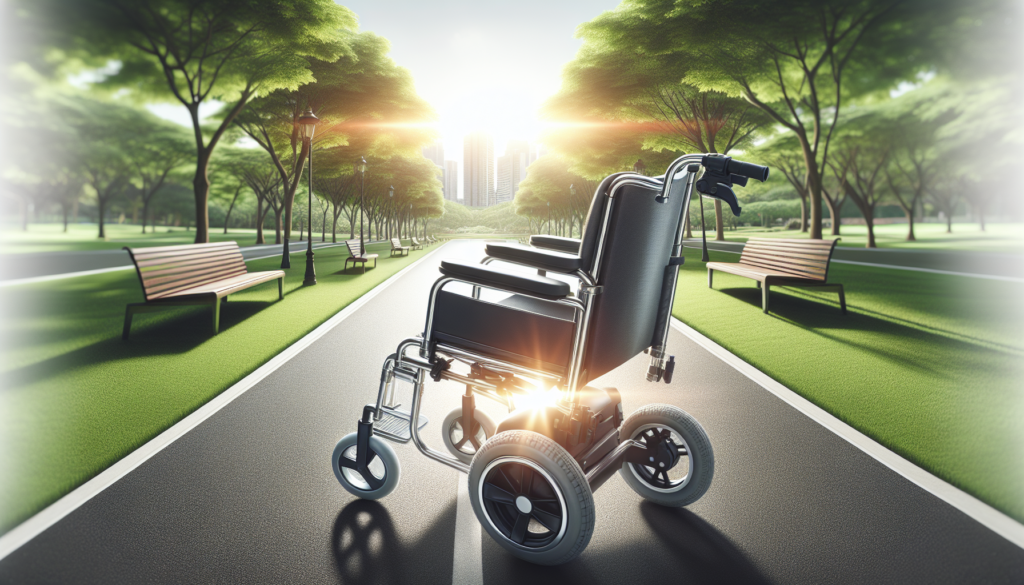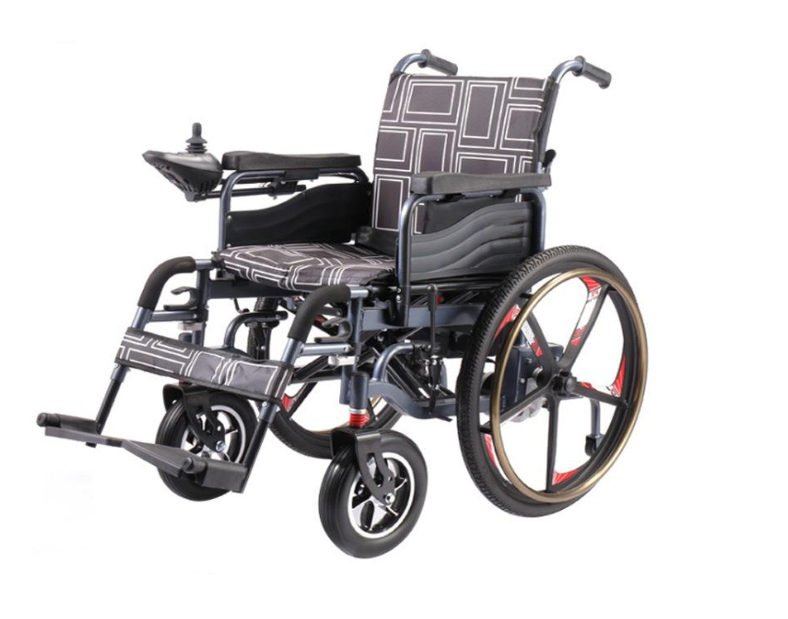As our loved ones age, when deciding between a mobility scooter and an electric wheelchair, we should ensure their mobility and independence becomes a priority for families, . Understanding the unique features and benefits of each can significantly impact the quality of life for elderly individuals. PMAs, typically bulkier and more affordable, are designed for those with some walking ability, while electric wheelchairs provide more compact options, ideal for seniors with limited mobility. This guide aims to clarify the PMA difference, helping you make an informed decision that caters to the specific needs of your elderly family members as they navigate their day-to-day activities.

Understanding the Basics: What is a PMA Mobility Scooter?
A PMA mobility scooter is a powered device designed to assist individuals with mobility challenges, particularly the elderly, to regain their independence. Typically available in 3 to 4 wheels, these scooters feature a steering handle that allows for easier control while navigating outdoors. Although they tend to be bulkier compared to electric wheelchairs, they are often more affordable, making them an appealing choice for those who possess some walking ability but may need extra support when traveling longer distances.
Mobility scooters are specifically tailored for outdoor use, where their heavier frames deliver stability and comfort, albeit at the cost of tight maneuverability in indoor spaces. For seniors who enjoy spending time outside but have difficulty walking long distances, mobility scooters provide a reliable mode of transportation. They are particularly suited for those who can handle some walking but want to reduce fatigue when engaging in outdoor activities such as shopping or attending community events.
However, it’s essential to note their limitations in tight spaces; a mobility scooter might not be the best fit for indoor maneuvering or for seniors with more serious mobility issues who require greater adaptability. Understanding these fundamental characteristics helps caregivers and family members make informed choices when selecting the right mobility aid for their loved ones.
Understanding the Basics: What is an Electric Wheelchair?
An electric wheelchair, also known as a power wheelchair, is a mobility device designed to offer enhanced mobility for individuals with limited walking ability. Typically more compact than their mobility scooter counterparts, electric wheelchairs provide users with the option of hybrid assistance, meaning some models, like the eDegree EW5, also allow for manual wheeling. Their diverse pricing range, up to $3,500, depends on factors such as materials used and advanced features like improved maneuvering capabilities.

These features make electric wheelchairs particularly suitable for elderly individuals who seek independence and ease of movement in various environments. One of the significant advantages of electric wheelchairs is their lightweight design, which can be as low as 12.5kg, making them ideal for tight spaces and indoor navigation.
Unlike the bulkier mobility scooters that are tailored for outdoor use and broader paths, electric wheelchairs are versatile, allowing users to navigate smoothly both indoors and outdoors. As a result, they cater well to the needs of elderly individuals who may have mobility challenges yet still wish to maintain an active lifestyle. Understanding these basic features of electric wheelchairs is crucial for caregivers and family members as they consider the best mobility solutions for the elderly.
Key Differences: Mobility Scooter vs Electric Wheelchair
When considering mobility options for the elderly, it’s essential to understand the key differences between mobility scooters and electric wheelchairs. Mobility scooters are typically designed with 3-4 wheels and feature a steering handle for more manageable control. These scooters are often bulkier, more affordable, and best suited for older adults who have some walking capability, making them ideal for outdoor use.
However, their heavier weight and limited maneuverability can make them awkward in tighter spaces, which may not be convenient for those living in compact environments. In contrast, electric wheelchairs usually boast a more compact design and can serve multiple environments, whether indoors or outdoors. Some models, like the hybrid eDegree EW5, even offer a manual wheeling option, catering to varying mobility needs.
The price range for electric wheelchairs can fluctuate significantly based on materials and features, reaching up to $3,500. They are particularly well-suited for elderly individuals with limited walking ability, providing greater comfort and easier navigation in smaller areas. Overall, the choice between a mobility scooter and an electric wheelchair largely depends on the individual’s mobility requirements and living conditions.
Benefits of Mobility Scooters for Elderly Users
Mobility scooters offer a myriad of benefits for elderly users, primarily designed for individuals who retain some level of walking ability but may struggle with longer distances. With their robust design and typically 3-4 wheels, these scooters provide excellent stability, making them an affordable option for outdoor mobility.
The steering handle aids in control and navigation, allowing users to traverse various terrains comfortably. Their bulkiness does not overshadow their functionality; rather, it enhances their ability to accommodate larger users, making them a popular choice for many elderly individuals who desire independence while exploring their surroundings.
Moreover, mobility scooters tend to be more financially accessible compared to electric wheelchairs, which is a significant consideration for families seeking affordable solutions for their elders. While their size may limit tight maneuvering in indoor settings, the outdoor usability stands out as a great advantage. For elderly individuals who enjoy spending time outdoors, attending social gatherings, or simply taking leisurely strolls around the neighborhood, mobility scooters are a great tool for preserving their autonomy and quality of life.
Maneuverability: Best Options for Indoor and Outdoor Use
When considering maneuverability for elderly individuals, both mobility scooters and electric wheelchairs have distinct advantages suited for different environments. Mobility scooters are typically bulkier and designed for outdoor use, making them ideal for those who enjoy exploring parks or running errands. Their three to four wheels provide good stability, but they are not the best option for tight spaces due to their size.
This makes mobility scooters better suited for seniors with some walking ability who enjoy broader navigational freedom outside but may find challenges indoors or in confined areas. In contrast, electric wheelchairs offer a compact design that excels in maneuverability, especially indoors. An electric wheelchair can easily navigate through tight corridors and small rooms, making it an ideal choice for seniors with limited mobility who spend a significant amount of time indoors.
Therefore, when considering maneuverability, it’s essential to evaluate where the elderly individual will primarily be using the device to make the best choice between a mobility scooter and an electric wheelchair.
Making the Right Choice for Mobility Needs
In conclusion, the decision between a mobility scooter and an electric wheelchair largely depends on the specific mobility needs and preferences of the elderly individual. Mobility scooters are an excellent option for those who can walk a bit and prefer a more affordable and heavier vehicle primarily designed for outdoor use.
They offer a simple and straightforward way to maintain independence for those with some walking ability, though they might be less ideal for tight indoor spaces due to their bulkier design. On the other hand, electric wheelchairs present a versatile solution for individuals with limited walking abilities. With their compact size, hybrid assistance options, and lightweight construction, they are perfect for navigating through both indoor and outdoor environments with ease.
While cost may vary based on materials and features, investing in an electric wheelchair can significantly enhance the mobility and comfort of the user. Ultimately, assessing the individual’s lifestyle, mobility needs, and personal preferences will guide the right choice between these two valuable mobility aids.
This post highlights how living conditions can greatly impact the mobility needs of seniors. Thank you for pointing out the importance of choosing the right mobility solution.
Dear Kalindi, it’s great to hear that the post resonated with you. We understand the complexities of choosing the right mobility solution for seniors, and it’s wonderful that you’re prioritizing their needs. If you have any further questions or concerns, please feel free to reach out to us at [email protected] or +65 6589 8877. Looking forward to serving you and your loved ones. Best regards, The Eko Life Team.
I agree that restoring independence is crucial for seniors. The affordability and functionality of mobility scooters and electric wheelchairs are also important factors to consider.
Thank you, Hayden, for sharing your thoughts on the importance of restoring independence for seniors when it comes to choosing between mobility scooters and electric wheelchairs. At Eko Life, we prioritize providing affordable and functional e-mobility solutions to ensure seniors can move around with ease. If you have any further questions or would like to explore our range of products, please don’t hesitate to contact us at [email protected] or +65 6589 8877.
I think this is a very informative post! The comparison between mobility scooters and electric wheelchairs helps me understand the needs of my grandmother better.
Thank you, Kaelynn! We’re glad to hear that our post was informative and helpful for understanding the needs of your grandmother. If you have any further questions or would like us to recommend a suitable mobility solution for her, please don’t hesitate to reach out to us at [email protected] or call us at +65 6589 8877.